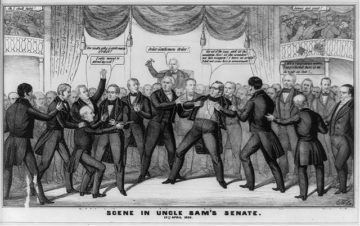 Gideon Jones in Strife:
Gideon Jones in Strife:
One of the great stories about the United States in recent years has been the rise of political polarisation and instability. Though the growing strife at the heart of the nation has been in the making for decades, the last year alone has seen the Covid Crisis, the death of George Floyd and the subsequent Black Lives Matter movement, as well as an election process that climaxed with the storming of the U.S Capitol Building. To any observer, it is apparent that these events have continued to exacerbate cleavages in American political life, and it seems that such divides will not be bridged anytime soon. The great fear is that US in the 21st Century may be facing a period of political instability, competing radical ideologies and ever-widening inequality. The last century in the US saw a post-World War One resurgence in the Roaring of the 1920s- will the 2020s in contrast see us dragged Screaming through the decade?
The United States is not alone in facing this problem. France has faced nationwide protests since 2018 with the gilets jaune movement, whilst the United Kingdom faced political paralysis and partisan infighting with the Brexit referendum (while Northern Ireland faced some of the worst riots its seen in years in part due to the Irish Sea Border). Many hypotheses have been put forward about the source of the discontent that has been rising in the United States and the rest of the Western world. Yet no theorisation, I believe, can claim to be as unique or intriguing as that of elite overproduction, and there is reason to believe that the 2020s will continue to see increasing political instability because of it.
Peter Turchin, whose work has been gaining increased recognition as of late, uses Structural Demographic Theory alongside a way of studying the long-term dynamics that create conditions for political stability, and in turn, political disintegration, and uses this to analyse history. Turchin proposes that all structural-demographic variables that influence the (in)stability of a given society are encompassed within three forces: the population, the state, and the elites (with each of these categories subject to change in response to structural shifts).
More here.
